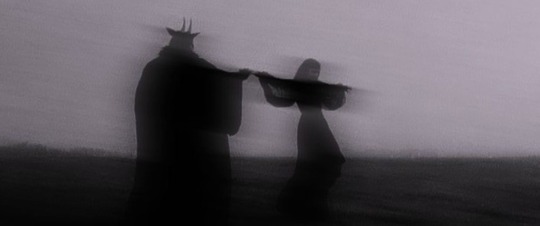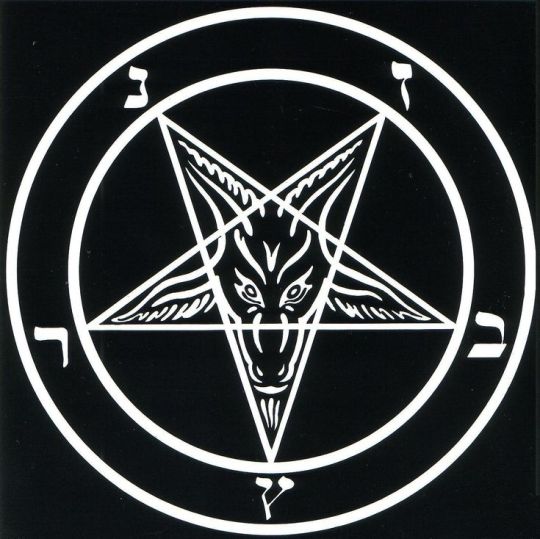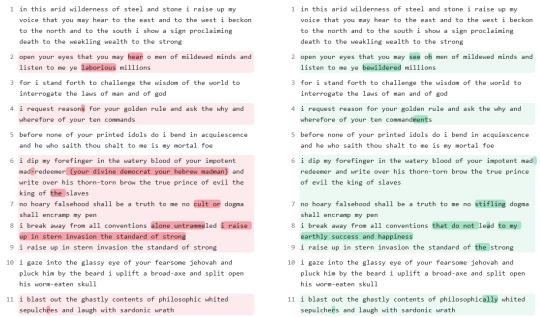#laveyan satanism
Explore tagged Tumblr posts
Text
A guide to demonolatry


What is demonolatry?
Modern Demonolatry is a polytheistic religion, focusing on the worship and cult of demons, both adepts and students of the Left Hand can adopt it in two ways, one through a more theistic view and another more practical and modern view. Demons are spirits with a great degree of wisdom that the magician can access their energies, the adept can choose to worship them, or just work with the energies by performing ceremonial rituals.
In Demonolatry, we invoke them without trapping them in magic circles - like in goetia - because we are similar to them and like us, they deserve their freedom and autonomy.
As described by S. Connolly on her book: The complete guide of demonolatry: "A DEITY IS COMPOSED OF MATTER. WE WORSHIP (WORK WITH) THIS "MATTER". THROUGH PRAYER, WE GIVE IT FORM AND POSITIVE ENERGY. IN TURN, IT WILL RETURN THE FAVOR."
In other words, we work with and honor demons to discover our true potential as imperfect but divine beings bound to a physical plane of existence. They do not control or harm us, we control ourselves, we remain our own person as we worship them.
WHAT ARE DEMONS?
Demons/daemon = spirit of knowledge and wisdom, a devil in Christian mythology, daemon derives from daimon which means full of wisdom, divine power, the word is of Greek origin. These deities were worshipped in the pre-Christian (pagan) era and religions, many entities of paganism, Roman, Greek, Egyptian pantheons were classified as demons by the Christian church. We can say that these spirits are great teachers, ancient gods.
CATEGORIES OF DEMONOLATRY
First let's understand what demonolatry and demonology mean, just so you don't get confused.
Demonology = the study and cataloging of demons.
Demonololatry = the worship of demons and/or the practice of ritual magic with the help of entities known as demons.
Demonolators = those who practice demonolatry in the form of worship or practice magic.
Theistic Demonolatry: they see demons as real entities, they are gods of the past, ancient gods, they are rulers of the world, like Satan, the whole, the universe.
Modern Demonolatry: In this current, demons are forces of elemental energies that help with spiritual self-knowledge and magical operations. They personify an emotion, an element or an idea. Demonolatry is an individual system, each follower has their beliefs regarding demons, if you work with demons you are a demonolator.
As pointed out before, many entities considered "demons" were ancient gods that were demonized by Christianity, with this image perpetuated for so long that many people still believe that they are, in fact, just demons.
An example of this would be the Canaanite god Baal, whose origins are distorted but also complex. Analysis of archaeological and epigraphic artifacts points to Upper Mesopotamia, associating him with the Gods of "time." Specifically, his origins date back to Aleppo, considered the motherland of the God Hadu. During the Middle and Late Bronze Age, the cult of Hadu expanded throughout the Levant. In Lower Mesopotamia, he was known under the names Haddu, Hadda, Hadad, Addu, and Adad. On the Syro-Palestinian coast, in the middle of the second millennium BCE, Hadu was initially worshiped with the epithet "Baal" (Baal-Hadu). Over time, this epithet replaced the original name, transforming Hadu into the "new" God Baal.
As one can presume, Baal lost his origin and was turned into one of the demons in the Ars Goetia, described as the King of the East, Lord of storm and fertility.
He has a very fascinating origin, but let's get back to the topic we were discussing!
ENNS
Enns are magical invocations designed to summon demonic spirits. No one knows what language the Enns come from - some have said that they were given to us by a demon. They were first considered demonic enns in the late 16th century by the demonolator Alexander Willit. Enns are unique in that they appear in several family grimoires from different geographic locations and always remain the same.
You can chant the enn while you meditate so you and the demon can connect to each other, you can use it as a form of flattery. There's many ways one can use it.
SIGILS OF DEMONS
Sigils are symbols created for a specific magical purpose.
In Demonolatry, sigils are representations of demonic entities. Sigils allow the practitioner to focus on the demonic entity, connect with the demon's energy, and also simply honor the demon. They are tools used to help the practitioner summon a Demonic Entity.
THE NINE DIVINITIES
The nine deities, according to Richard Dukante, are the demons of the fundamental energy of the universe, of existence and balance. These energies are: fire, earth, air, water, positive polarity (health), negative polarity (destruction), life and death. All these energies together form Satan (the Whole), but individually, they are distinct demons.
These demons are:
Fire – Flereous
Earth – Belial
Air – Lucifer
Water – Leviathan
Health – Verrine
Destruction – Amducious
Life – Unsere
Death – Euronymous
HOW TO WORK THEM / TYPES OF OFFERINGS
In Demonolatry, offerings depend on the purpose and the demon you are working with. You can offer blood, as it contains our vital energy, or you can offer sexual fluids, an hour of study about a demon, or the disclosure of their seal and names.
In Demonolatry, the magician does not use a triangle or a circle of protection, because contact with these energies (demons) will not be aggressive or hostile, and there is no need for banishments and threats. Here, the magician and the entity work in partnership. You can light the candle and invite them to come to you, and many times, they will come. Research about them and make a sincere offering as a thank you for their time and for them coming to your ritual.
What's the difference between Satanism and demonolatry?
The word and its derivation “Satanist” appeared for the first time in French and English in the sixteenth century during the European Wars of Religion. In publications from this period, Roman Catholic authors directed it against Protestant Christians, and vice versa, while both applied the epithet to Anabaptists.
Their polemical use of the term did not necessarily mean that they thought their religious counterparts were self-consciously and secretly worshipping the devil — although mutual abuse might occasionally spill over into such allegations, particularly with regard to the Anabaptists — but rather that Roman Catholic veneration for “graven images” or Protestant adherence to “heresy” implied being a fellow traveler on Satan’s bandwagon. In the early nineteenth century, the terms “Satanist” and “Satanism” acquired even broader meanings and came to designate a person or thing with a “Satanic character,” a person or thing inherently evil or wicked.
Only toward the end of the nineteenth century did the word “Satanism” come to hold the significance that it still has, for historians of religion, B-film directors, and the general public alike, namely, as the intentional and explicit worship of Satan. This is not to say that the concepts and practices embodied in this word did not exist prior to that time.
According to Children of Lucifer: The origins of modern religious Satanism - Ruben Van Luikj.
Satanism as we know now is divided into two: theistic Satanism and atheistic Satanism. Let's delve a little into how differente they are now.
Modern Satanism has its roots in the 20th century, with figures such as Anton LaVey, founder of the Church of Satan in 1966, and writer of the Satanic Bible. LaVey also structured his own commandments, which are: I - You shall love and hate with equal intensity.
II - You shall love yourself above all else.
III - You shall love others as they love you.
IV - You shall know yourself.
V - You shall always seek material and spiritual improvement.
VI - You shall not use Satan's name for wrongful purposes.
VII - You shall respect and protect children and animals.
VIII - You shall live every second as if it were your last.
IX - You shall walk your own path but respect the path of others.
X - You shall give your best in everything you do
LaVeyan Satanism, for example, is more of an atheistic philosophy that uses the figure of Satan as a symbol of rebellion, individualism, and skepticism. There is no belief in literal demons or deities. Theistic Satanism, though, involves belief in Satan or demons as real entities and may include worship practices similar to Demonolatry.
In LaVeyan Satanism, practices include symbolic rituals, ritual magic, and the celebration of values such as hedonism and rational selfishness. In Theistic Satanism, practices may include worship, invocations, and offerings to Satan or demons.
Demonolatry involves the worship of demons as deities, and is more devotional and spiritual. LaVeyan Satanism does not believe in literal demons, and focuses more on an atheistic philosophy focused on individualism and skepticism, while Theistic Satanism may involve the belief in Satan or demons as real entities.
What's the difference between Goetia and demonolatry?
Luciferian Goetia is a modern evolution of Solomonic Goetia, adapting ancient practices to a more contemporary philosophy. It emphasizes collaboration and learning from demons, viewing them as spiritual mentors or allies. The approach is more enlightened and less authoritarian, focusing on spiritual growth and self-knowledge. This branch uses rituals, sigils, and invocations, but with an intention of partnership and mutual respect rather than control or domination.
Solomonic Goetia has its roots in ancient texts such as the "Lemegeton" or "The Lesser Key of Solomon". It is a traditional and well-structured practice. It involves the evocation and control of demons through detailed and authoritative rituals. The practitioner seeks to dominate and command these entities to obtain benefits or perform specific tasks. Its practices include the creation of magic circles, the use of sigils and the performance of complex rituals to evoke and control demons. The focus is on controlling and dominating demons to achieve specific goals, such as power, knowledge or the accomplishment of tasks.
Demonolatry = Veneration and worship of demons as deities.
Luciferian Goetia = Collaboration and learning with demons as mentors.
Solomonic Goetia = Control and domination of demons to obtain benefits.
Each of these practices offers a unique path for those seeking to interact with demonic entities, but with different philosophies, methods, and goals.

A/n: there was so much info i could write about, but i think this went really well. If I notices that I missed an important detail, I may do a part 2. Hopefully I was able to shed some light on this topic!
#paganism#witchblr#demonolatry#theistic luciferianism#theistic satanism#laveyan satanism#witchcraft#luciferian witch#demonolatress#demonology#demons#deity work#demon worship#demon work
333 notes
·
View notes
Text
Anton LaVey was a mediocre douchebag
The original title for this was "Satanic rule of earth #9: Do not harm little children*" but then it expanded on us as a project.
We're going to talk about three things in order, with the purpose to prove with evidence that — far from being a diabolical, monstrous villain of infamy and atrocious deeds — the author of "The Satanic Bible" was just boringly and commonly horrible, as so many shitty dudes you already know are shitty.
"Anton LaVey's first marriage to a 15-year-old girl was pretty fucked up, huh?" Initially that's all it was supposed to be. Grown man grooming and marrying a child. But of course it's worse than that and doesn't stop there.
"Oh, damn LaVey was gross." LaVey being a weird little guy who liked smellz is somewhat well-known, sure. But in the process of working on this, we just kept running across more examples of LaVey's romantic relationships being shitty and even abusive in the mundane ways so many men are, and that on top of the physical unpleasantness of not bathing or brushing his teeth. Really unpleasant dude.
"Wow, Anton LaVey did not give a shit about child sexual abuse going on." Mind you, this is not in a "ritual abuse" way. Nothing so salacious or lurid as that. We mean the typical, "Eh, what's the big deal?" when people around him hurt children, especially when it was powerful people and those he considered his friends.
That's why this is so fucking long: Anton LaVey was a mediocre douchebag, and it starts way back and goes on until the day he fucking dies.
#Anton LaVey#Church Of Satan#Carole Lansing#Diane Hegarty#BlancheBarton#Donald Werby#Don Werby#James Mason#LaVeyan Satanism#11 Satanic Rules Of Earth#Eleven Satanic Rules of Earth#Satanism#Satanists
61 notes
·
View notes
Note
in celebration of may eve (walpurgisnacht), can we have some facts about it?
Walpurgis Night, also known as Saint Walpurga's Eve, Valborg and St. Val's Witchy Shindig, is a celebration held in Spring to commemorate the time the people of a small town prayed for salvation from witches so God in turn sent men who burned them all as witches. It is mostly celebrated by eating, dancing, and lighting things on fire, but some also celebrate it by founding counter-cultural religious establishments that annoy the crap out of christian fundamentalists and last nearly 50 whole years before getting flooded with conspiracy theorists, racist idiots, and people who argue endlessly on Facebook about whether "LaVeyan" is a valid word.
44 notes
·
View notes
Text
The Philosophy of Satanism
The philosophy of Satanism, particularly in modern interpretations, is often grounded in individualism, self-empowerment, and a rejection of traditional religious dogma. There are various branches of Satanism, each with its own approach and interpretation. While early portrayals in history associated Satanism with anti-Christian and occultist ideas, contemporary movements largely emphasize philosophical, symbolic, and sometimes atheistic elements.
Core Branches of Satanism
LaVeyan Satanism: Founded by Anton LaVey in 1966, LaVeyan Satanism is one of the most well-known and structured forms. LaVey’s Satanic Bible outlines Satanism as an atheistic philosophy that emphasizes rational self-interest, individuality, and personal freedom. LaVeyan Satanism doesn’t worship a literal Satan but uses "Satan" as a symbol of rebellion against conformity, self-denial, and oppressive moral codes. Core principles include self-reliance, pursuit of pleasure, and rejection of guilt or shame for natural human desires.
Theistic Satanism: In contrast to LaVeyan Satanism, theistic Satanism involves the belief in and veneration of Satan as a deity or supernatural being. Followers may view Satan as a force representing wisdom, self-empowerment, or the spirit of rebellion against unjust authority. They typically emphasize spirituality, ritual, and a personalized relationship with their deity.
The Satanic Temple: Founded in 2013, The Satanic Temple is a non-theistic, socio-political organization that advocates for secularism, religious freedom, and separation of church and state. Its use of Satanic imagery and symbolism is often satirical, serving as a critique of authoritarianism, religious fundamentalism, and hypocrisy. The Satanic Temple’s guiding principles prioritize compassion, rational inquiry, and individual sovereignty.
Other Forms of Satanic Philosophy: Other branches, including Luciferianism, focus on the figure of Lucifer as a symbol of enlightenment, knowledge, and self-discovery. Unlike traditional Satanic archetypes, Luciferianism often associates Lucifer with wisdom, learning, and the search for truth.
Key Philosophical Concepts in Satanism
Individualism and Self-Empowerment: Many forms of Satanism prioritize the individual as the center of moral authority, encouraging followers to take personal responsibility and to live according to their own principles and desires. Self-reliance and self-empowerment are celebrated, often rejecting dependence on external authority for moral guidance.
Rebellion and Nonconformity: Satanism often embraces the symbol of Satan as a figure of rebellion against oppressive norms or restrictive moral frameworks. This aspect resonates with the desire for freedom from traditional dogmas and the encouragement to think critically and independently.
Pleasure and Self-Interest: Satanism frequently rejects asceticism and self-denial, advocating for the pursuit of pleasure, self-gratification, and enjoyment of life. This philosophy is rooted in a materialist understanding of existence, where one’s current life is seen as the primary focus rather than preparation for an afterlife.
Critical Thinking and Skepticism: Modern Satanism, especially within The Satanic Temple, emphasizes scientific skepticism and rationalism. It challenges superstitions, encourages questioning, and critiques traditional religious dogmas that demand faith without evidence.
Ethics and Morality: Satanic philosophies often propose alternative ethics rooted in individual responsibility rather than divine commands. LaVeyan Satanism’s “Nine Satanic Statements,” for instance, outline an ethos that prioritizes self-respect, personal boundaries, and retributive justice, but they reject traditional moral frameworks as rigid or unnatural.
Satanism in Cultural and Social Context
Satanism’s popularity and influence are, in part, responses to societal structures, particularly within heavily religious cultures. By challenging the norms, it presents a counterpoint to dominant religious narratives, emphasizing secularism and religious pluralism.
In modern contexts, Satanism also serves as a vehicle for social critique and protest. Organizations like The Satanic Temple advocate for political issues like freedom of expression and the separation of church and state, often using provocative imagery to challenge established social orders and protect minority rights.
Controversies and Misconceptions
Satanism often faces misunderstanding due to historical associations with evil and media portrayals of occult rituals. While some forms of Satanism are theistic, most modern movements are symbolic, emphasizing reason and autonomy rather than supernatural beliefs. Contemporary Satanists typically do not believe in or worship an actual Satan as defined in Christian theology.
Philosophical Influence and Modern Appeal
Satanism resonates with existentialist themes, particularly the focus on creating one’s own meaning in a seemingly indifferent universe. Its principles align with certain elements of Nietzschean philosophy, like the rejection of imposed moral codes and celebration of life and personal strength. It appeals to those who value self-expression, secularism, and an individual-centered approach to ethics.
Summary
Satanism, particularly in its modern forms, challenges traditional moral structures and advocates for individuality, self-empowerment, and a critical, skeptical outlook on life. It exists both as a personal philosophy and a social commentary, reshaping the symbol of Satan from a figure of evil to one of liberation, reason, and humanism.
#philosophy#epistemology#knowledge#learning#education#chatgpt#Philosophy of Satanism#LaVeyan Satanism#Theistic Satanism#Secularism and Rationalism#Rebellion and Nonconformity#Self-Empowerment#Individualism in Ethics#Religious Freedom#Anti-Authoritarianism#Critical Thinking and Skepticism
71 notes
·
View notes
Text



Snapchat pics
25 notes
·
View notes
Text
Kinda tired of people making satanism about being anti-Christianity. It feels like the dramatic teenager who swears they hate their ex but talk about no one else and make a show out of being "over them". It's cringe. I don't usually cringe shame cause it's everyone's personal choice and literally not my business. And yet, I find it immature to be up in Satanist (religious!) spaces and only talk about the religion you're not? Grow up please??
13 notes
·
View notes
Text
I found this on pinterest

and now I need a story about Lucifer’s rebellion with each of the angels being different old gods
#story#short story#writers on tumblr#writeblr#writing#writerscommunity#writing prompt#greek gods#gods#god#goddess#norse gods#hellenic gods#old gods#egyptian gods#persian gods#jesus fandom#ave satanas#satanist#hail satan#satan#satanism#satanic#ateistic satanism#666 satan#anton lavey#laveyan satanism#lavey
40 notes
·
View notes
Text
How to Develop Willpower: A Psychological Approach
Avoid Procrastination
Procrastination is the enemy of willpower. Every delay, every moment of hesitation weakens your ability to exercise self-control. Research shows that consistently putting off actions undermines self-confidence and creates a vicious cycle where success becomes increasingly elusive. The best way to strengthen your willpower is to take action immediately. Don’t wait for perfect conditions; they’re likely never going to come. Act here and now, even if the circumstances seem less than ideal.
Embrace Unpleasant Tasks
The human brain gravitates toward comfort, avoiding difficulties and opting for easy tasks. However, this pursuit of comfort is a trap that hinders the achievement of larger goals. Psychologists assert that tackling challenging or unpleasant tasks builds discipline and resilience. Develop the habit of starting with the most unpleasant tasks, and over time, willpower will become your natural state. This will not only increase your productivity but also boost your confidence in your own abilities.
Define Clear Goals and Beliefs
Willpower is closely tied to a clear understanding of what you want to achieve. If your goal is vague or if you don’t believe in the possibility of achieving it, it will be difficult to mobilize the inner resources needed for success. Psychological studies confirm that belief in success is a key component of willpower. Clearly visualizing your goals, understanding their importance, and genuinely believing in your abilities will strengthen your determination and help you overcome obstacles.
17 notes
·
View notes
Text

*Sálve Satanás*
Buenas tardes para todos, los invitamos a la Reunión gratuita que tendrá lugar toda la tarde, comenzando ahora mismo sobre:
*Anton Szándor Lavey*
Veremos su Biografía, aportes e Importancia en el Satanismo, bases del Satanismo Laveyano, cómo parte de estudio del Pénsum del Adepto de Primer grado, están todos ustedes invitados:
https://meet.google.com/cpw-zdmb-tdx
19 notes
·
View notes
Text
Blog Post: Embracing the Abyss: My Journey into Anton LaVey's Satanism

Posted by Damien Harker | Date: 13 September, 2023
Greetings, fellow seekers of the shadows,
Recently, I embarked on a new journey into the realms of Satanism, specifically delving into the wisdom of Anton Szandor LaVey, the enigmatic founder of the Church of Satan. As a metalhead, horror enthusiast, and lover of all things dark and mysterious, it felt like a natural progression to explore this intriguing philosophy.
My initiation into the world of LaVeyan Satanism began with "The Satanic Bible," a collection of essays penned by the High Priest himself. What initially drew me in were not the sensationalized stereotypes that surround Satanism, but rather the intriguing blend of individualism, rational self-interest, and unconventional wisdom that LaVey presented.
Satanism: Beyond the Misconceptions
Before diving into the book, I had to confront the misconceptions and misconstrued notions often associated with Satanism. Contrary to popular belief, Satanism, as articulated by Anton LaVey, isn't about devil worship, black magic, or malevolent rituals. Instead, it's a philosophy that champions personal empowerment, critical thinking, and a rejection of societal norms that stifle individuality.
The Nine Satanic Statements
One of the key aspects that resonated with me in "The Satanic Bible" was the Nine Satanic Statements. These statements serve as foundational principles, challenging us to question dogma and embrace the idea that we are our own gods. It's about taking control of our destinies, acknowledging our desires, and unapologetically pursuing them.
The Satanic Rituals: A Unique Perspective
While exploring the rituals presented in the book, I found LaVey's approach to ritualistic magic to be refreshingly pragmatic. Rather than supernaturalism, his rituals are psychological tools designed to tap into the power of the mind and one's own will. This practical perspective aligns with my fascination for the mystical and the psychological, bridging the gap between the macabre and the cerebral.
Embracing the Darkness
In the world of Anton LaVey, Satan is not a literal deity but a symbol of individualism, rebellion, and the untamed aspects of human nature. It's a philosophy that encourages us to embrace our darkness and to acknowledge that we are creatures of both light and shadow. This, for me, is a profoundly liberating concept.
My journey into LaVeyan Satanism is just beginning, and I'm eager to delve deeper into its tenets, explore its symbolism, and engage with like-minded individuals who share my fascination with the dark and unconventional. I'm not here to convert anyone, but rather to share my own experiences and perspectives as I navigate this intriguing path.
So, fellow shadow-dwellers, stay tuned for more updates on my exploration of Satanism, the occult, and all things that dwell in the twilight realm. And remember, sometimes, the most profound revelations are found in the depths of darkness.
Hail Satan, and hail the pursuit of individuality and self-discovery!
Until next time,
Damien Harker 🤘🖤
#anton lavey#church of satan#esoteric#priest kink#dark art#666#demonolatry#blasphemy#ave satanas#hail satan#laveyan satanism#satanic#satanic black mass#satanism#satanist#Itheist
70 notes
·
View notes
Text
Anton LaVey plagiarized* "Might Is Right" for "The Satanic Bible" — here's the proof

Anton LaVey, founder of the Church of Satan, directly lifted passages from the 19th century proto-fascist book "Might Is Right" by “Ragnar Redbeard” (Arthur Desmond) and did so extensively and without credit to produce a substantial part of LaVey’s most famous and popular work "The Satanic Bible".
This has been known for a very long while, although most Satanists tend not to be aware of just how shamelessly and thoroughly this work was done.
In fact, the Church of Satan sometimes tweets out passages from Might Is Right while supposedly praising LaVey.

To have quoted LaVey there, the Church of Satan would have had to tweet just "on the other".
And this is not a stray, incidental unattributed line that LaVey could have argued his readers ought to have immediately been familiar with as a sort of homage.
This was part of a wholesale, uncredited and unacknowledged ransacking of another person’s writing in order to create another, ostensibly-original book and sell it for profit. For example, here is how much from one particular section of Might Is Right ended up making it into LaVey’s book:

This is what LaVey and his partner Diane Hegarty, who also served as his typist an editor, used to introduce people to The Satanic Bible in its opening section the "Book of Satan". This isn't in some appendix or footnote; this is the first thing people reading the book were shown.
The "Book of Satan" portion of The Satanic Bible is essentially identical to parallel lines in Might Is Right: www.diffchecker.com/ppXjtPGV/
If you strip out differences in punctuation(!) and Capitalization and compare them, it's even more shameful: www.diffchecker.com/td0vLevN/

Depending on how you want to count, about 85 percent of this opening can be identified as directly copied, which still includes Americanization of spellings, leaving words out from the original, and a handful of words substituted within much larger phrases and ideas that were retained fully intact.
Only two of the 53 statements of the “Book of Satan” appear to be original creations of LaVey and Hegarty: Book III No. 5 and Book V No. 13. Feel free to check out the full comparison for yourself here:
#Anton LaVey#Church Of Satan#Satanism#LaVeyan Satanism#Ragnar Redbeard#Might Is Right#The Satanic Bible#Plagiarism#Book Of Satan#Satanic
52 notes
·
View notes
Text
Calling all Satanists!
Any age, any kind of Satanism. I require some assistance. I’m doing a research paper on modern Satanism (for an English class but I chose the topic because I care about it) & I’d like to learn about the beliefs & experiences of real individual Satanists. I’ve made a google form asking questions about this. I’d appreciate it so greatly if any Satanists reading this could fill it out. It’d be best if you fill it out by Wednesday 9/13 but if not that’s okay & it’ll still be useful after that.
Thank you! Ave Satanas
Reblogs much appreciated too so hopefully more Satanists can see this
#Satanist#satanism#the satanic temple#tst#the church of satan#luciferianism#non theistic Satanism#theistic satanism#laveyan satanism#occultist#witch
69 notes
·
View notes
Text
The Satanic Bible, by Anton LaVey

Title: The Satanic Bible
Author: Anton Szandor LaVey
Publisher: William Morrow Paperbacks
Publishing Date: December 1, 1969 (First Edition)
ISBN-10: 0380015390
ISBN-13: 978-0380015399
Alright, let's start with the elephant in the room. This little book is often the only thing people read on Satanism, and for good reason - it made quite a splash when it was published.
Considered the foundational text of the Church of Satan and their specific style of atheistic Satanism (often called LaVeyan Satanism), The Satanic Bible is part philosophy, part religious teaching, and part magical instruction. LaVey is well known for his stance that humanity does not need God, and that believing in God (or Satan, for that matter) as real entities serves only to hold back our potential. However, LaVey argues that humanity does need religion, and that religion requires dogma and ceremony. The dogma and ceremony LaVey offers to the reader is based on one's own happiness and self-satisfaction, as opposed to the Christian values of self-sacrifice for the greater good. His Nine Satanic Statements, Eleven Satanic Rules of the Earth, and Nine Satanic Sins are easy to read and understand, and seem to be the inspiration for other Satanist's lists of values, such as The Satanic Temple's Seven Fundamental Tenants.
LaVey embraces sexuality and indulgence, framing sexual energy as the best and most potent source of power for magical workings. Magic is described not as an appeal to a higher power but a seizing of one's own fate, aiming for success and happiness through the manipulation of the world around oneself. The practices he recommends are rooted in ceremonial magic, especially Enochian magic.
The Satanic Bible has had multiple editions and translations since its original publication and is widely available through most online book retailers, as well as sometimes being stocked in magical and metaphysical shops.
[DISCLAIMER: The Devil's Library is not affiliated with any of the previously mentioned groups or authors. It is an independent project by a single Satanist. Do not mistake my mentioning of an author or group as endorsement for their beliefs and practices.]
Beneath the cut you'll find my personal review and opinions on this book.
I've said before on this blog that I am not LaVeyan, and that's still true. While I greatly respect the concept of a non-theistic religion and I lift my glass to all those who work hard to form such religions, I prefer a theistic view of the world. On top of that, LaVey's philosophy does little for me. In truth I consider LaVey's work to not be particularly revolutionary in terms of philosophy. He was a self-admitted fan of Ayn Rand and his brand of Satanic individualism has oft been compared to Randian philosophy with a coat of occult paint slapped on top - I think that evaluation holds true. His magical system also strikes me as unoriginal, given he simply reworked the Enocheon keys. My overall evaluation of the man was that he was a lazy philosopher and a lazy magician, but a skilled showman, and that's how he pulled in as many followers and critics as he did. People were rejecting God and practicing ceremonial magic long before LaVey came along. He just cultivated a compelling aesthetic around it.
I think it's safe to say the book is a product of its time and creator. LaVey is both progressive and regressive, endorsing kink and queer sexuality while also objectifying women in his magical practice (LaVey is, as far as I can tell, the originator of the Satanic tradition of using a nude woman's body as an altar, and he makes a note that during ritual, men should wear robes, but women should dress scantily in order to titillate the men) and having some deep misunderstandings about asexuality. It's also not to be taken lightly that while as far as I'm aware, LaVey himself didn't profess to be a white supremacist, his fondness for Ayn Rand shows a fondness for fascism, he certainly rubbed elbows with white supremacists, and various individuals and groups that broke off from the original Church of Satan have been noted as having a range of Nazi-adjacent views and values, namely the Temple of Set. His list of "Satanic names" is also a very sloppily cobbled together list of names of any god, deity, or spirit who's ever been even slightly associated with negativity, utterly ripped from their cultural context and reduced to keywords that, I assume, LaVey expects the readers to either claim as names of their own or use in rituals. The list includes outright racist cultural appropriation, such as the inclusion of Kali's name, to ignorant misrepresentations of myth, such as calling Loki the "Teutonic devil." As always, I recommend referencing scholarly and culturally conscious resources when it comes to discussions of other religions and mythologies. Do not take a single writer with no credentials at face value.
That being said this is a book I generally recommend people read, with the added note that taking it entirely at face value and assuming it's the one true Satanic text is a mistake. The Satanic Bible is integral to our religious history at this point, but we need not cling to it as entirely or even mostly correct. It is also useful to be familiar with it when interacting with other Satanists, as it's possibly the most commonly read book in the entire religion, so like it or hate it, you probably should have some opinion on it.
#satanism#atheistic satanism#the satanic bible#anton lavey#laveyan satanism#satanic magic#the devil's library#the devils library#tdl#bookshelf#my posts
57 notes
·
View notes
Text
About Lucifer.
Please, if you don’t respect my religion kindly don’t interact with this, unless you’ve got a genuine question.
Lucifer, light of the morning. His birthday is today, and lately I couldn’t help but delve deeper into him, into his art. The representation of knowledge, of rebellion against God, in which I deeply see myself ever since I realized I am a Satanist.
I think there’s nothing more fascinating than the representation of Lucifer throughout history. In the Middle Ages, he was depicted as a monster, as art was the only medium through which everyone could access the knowledge of biblical history, and since they had to distinguish “good” from “evil,” he was portrayed in a brutal manner. But as the years passed, especially during the Romantic period, he came to be seen in a positive light as a bearer of knowledge.
I do see him as a positive light, a bearer of knowledge. I see him as a muse, and I’m really thankful I’ve been meditating to him.
Ave Lucifer.
6 notes
·
View notes
Text
Satanism Explained
Satanism is a diverse and multifaceted term that encompasses a range of beliefs and practices. It is important to note that there are different branches or interpretations of Satanism, and they can vary significantly in their ideologies and values.
Here, I'll provide an overview of two distinct branches: theistic Satanism and LaVeyan Satanism.
Theistic Satanism: Theistic Satanism refers to a belief system in which individuals worship or venerate Satan as a deity. Adherents of theistic Satanism often view Satan as a real being or a representation of primal and rebellious forces. They may engage in rituals, prayers, and other forms of worship dedicated to Satan. It's worth mentioning that not all theistic Satanists engage in harmful or malevolent practices; some emphasize personal empowerment, individualism, and a rejection of societal norms.
LaVeyan Satanism: LaVeyan Satanism, also known as modern Satanism, was founded by Anton LaVey in the 1960s. LaVeyan Satanists do not believe in the existence of a literal Satan but rather see Satan as a symbol representing individualism, self-indulgence, and human potential. They embrace the idea of self-preservation and emphasize rationality, critical thinking, and personal freedom. LaVeyan Satanism promotes the pursuit of personal desires and encourages adherents to question societal norms and religious dogma.
It's important to note that the vast majority of Satanists, whether theistic or LaVeyan, do not engage in criminal or harmful activities. While some individuals may adopt the symbols or aesthetics associated with Satanism for shock value or rebellious expression, it does not necessarily indicate adherence to Satanic beliefs or practices.
Remember, this is a general overview, and Satanism is a complex and varied topic.
92 notes
·
View notes
